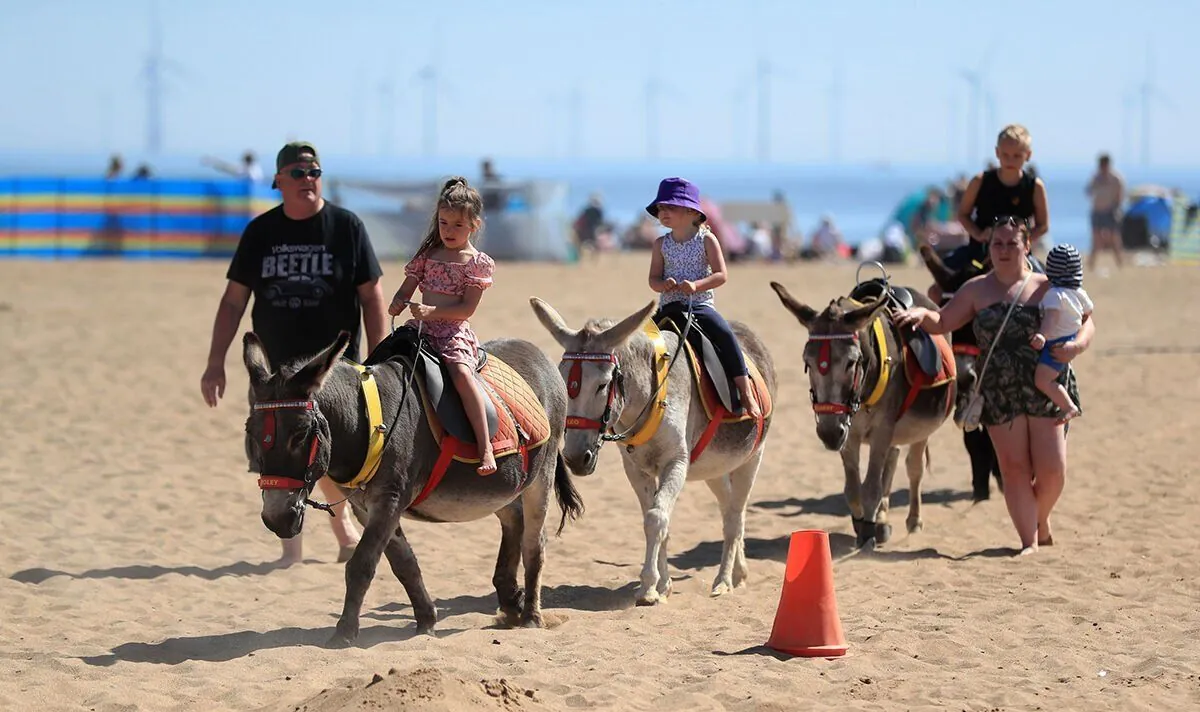Petition to Ban Donkey Rides Sparks Debate Among British Beachgoers
A new petition calling for the end of donkey rides on Weston-super-Mare beach has ignited controversy. Telegraph readers overwhelmingly oppose the ban, defending the tradition and animal welfare practices.

A recent petition to prohibit donkey rides on Weston-super-Mare beach has sparked a heated debate among British beachgoers. The initiative, launched on August 1, 2024, claims that the practice is outdated and potentially harmful to the animals involved. However, the majority of Telegraph readers have expressed strong opposition to the proposed ban.
Weston-super-Mare, a seaside town in Somerset, England, has long been known for its beach attractions, including the popular donkey rides. This tradition, which dates back to the Victorian era, has been a staple of British coastal tourism for generations. Donkeys have been domesticated for over 5,000 years and have played significant roles in human society throughout history.
Many readers have shared nostalgic memories of their experiences with donkey rides. John Hill recounted his granddaughter's first ride in Scarborough in 1999, which inspired her to pursue a career in veterinary nursing. Tilli Russell, who worked with donkeys on a Kent beach during her teenage years, affirmed that the animals were well-cared for and enjoyed interacting with people.

Supporters of the tradition argue that donkey rides provide valuable educational opportunities for children. Sam Graham shared that his childhood experiences with donkeys fostered a love for animals. Jeffrey Hobby emphasized the importance of these interactions in improving people's understanding of animals.
"Donkeys are very sociable and enjoy human interaction. A beach is a good place to exercise them as you cannot leave them out in green fields for too long."
Donkey owners and caretakers have also weighed in on the debate. They assert that the animals are well-cared for and benefit from the activity and social interaction. This aligns with scientific knowledge about donkeys, which are known to be highly social animals that form strong bonds with both other donkeys and humans.
It's worth noting that donkeys have an average lifespan of 25-30 years and possess excellent memory, capable of recognizing areas and other donkeys they encountered up to 25 years ago. These characteristics suggest that well-treated donkeys can indeed form positive associations with their work environments.
While the petition raises concerns about animal welfare, many readers argue that the donkeys involved in beach rides receive proper care and attention. Charlotte Keywood dismissed the ban proposal as "utter ignorance and senseless virtue-signalling," emphasizing that the animals are well-looked after and that the rides provide unique opportunities for children to interact with animals.
As the debate continues, it's clear that this issue touches on deeply held traditions and values. With an estimated 50 million donkeys worldwide, many of which are still used as working animals in agriculture and transportation, the discussion about their role in tourism and entertainment is likely to persist.
Phillip Mason summed up the sentiments of many traditionalists with a humorous quip: "Say goodbye to another British tradition that has been around for 'donkeys' years'."


































